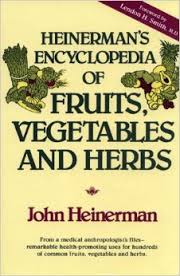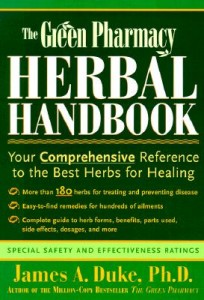Over a week ago I set out to write a post on natural and herbal remedies. As you might have seen from my last post, it didn’t go as easily as expected.
No doubt if you’re interested in living sustainably and helping the environment, you’ve dabbled in natural and herbal remedies before. Maybe you had it easier than I did, and little information faeries flew down and granted all your wishes. More likely, though, you found yourself drowning in a sea of information. So how do you figure out how to feel better naturally when everyone and their mother (almost literally) has their own sworn-by cure for whatever ails you? Here are some suggestions to make your search go more smoothly:
Books

 My first suggestion is to invest in a book or head to the library. The internet can be quick and cheap, but that means the information you get can be quick and cheap, too. While some websites do put a lot of research into their articles on natural remedies, you can almost guarantee that a reputable book was seriously researched before publishing. Most will list their sources in the back. Essentially, it boils down to that old saying “don’t trust everything you read on the internet” (she says as she posts something to the internet). Then again, don’t trust everything you read in a book either—really, don’t trust anything until you’ve done some of your own research. But books are a good place to start. (They also have the added benefit of blocking out all the distractions of the internet.)
My first suggestion is to invest in a book or head to the library. The internet can be quick and cheap, but that means the information you get can be quick and cheap, too. While some websites do put a lot of research into their articles on natural remedies, you can almost guarantee that a reputable book was seriously researched before publishing. Most will list their sources in the back. Essentially, it boils down to that old saying “don’t trust everything you read on the internet” (she says as she posts something to the internet). Then again, don’t trust everything you read in a book either—really, don’t trust anything until you’ve done some of your own research. But books are a good place to start. (They also have the added benefit of blocking out all the distractions of the internet.)
Online Searching
Some good internet databases I found for searching for remedies by ailment are HowStuffWorks.com and Earth Clinic. HowStuffWorks is a curated list of their suggested remedies by ailment, while Earth Clinic lists everything their users have ever send in. One is concise and more reliable, while the other is more comprehensive and based on word-of-mouth.
Check Everything
You will find a lot of information out there, so it is always good to double-check (and triple check and quadruple check). For double-checking what you find, this graphic is especially helpful. It tells you whether there have been any reputable clinical studies done about the remedy. (Just because there aren’t doesn’t necessarily mean the remedy doesn’t work or is bad—it could just mean the studies were poorly conductive, the results were inconclusive, or no one has studied it yet.) Other good resources include WebMD, which has a page for most of the popular natural remedies describing whether they have been proven effective and whether there are any dangers associated with them, and Wikipedia, which can often be as helpful and accurate as WebMD. (Although we all know to be cautious not to believe everything on Wikipedia.)
Safety First
When it comes down to administering herbal remedies, one of the biggest things to be mindful of is safety. If you’re not sure if putting some minced garlic in your chicken noodle soup will really help your cold, chances are it won’t hurt you to try it (unless you hate the taste of garlic, I suppose). But there are some plants and herbs that can have side effects just like pharmaceutical medicines, and some of them can even be especially dangerous for people on other medicines or with medical conditions. Make sure you know if there’s any risk associated with the remedy you’re considering, and if there is, talk to a health care professional before attempting to use it. Know the proper way to prepare the remedy as well, as some plant used in remedies can be poisonous—such as elderberry, which is poisonous raw, but once cooked makes a popular remedy for colds in syrup and tea form.
Above all else, the word of the day is caution. Herbal remedies can be a wonderful alternative to pharmaceutical medicines, but make sure you do your own research first and don’t rely on someone else to tell you what does and doesn’t work. If you would like to check out some of the remedies I did manage to find while swimming in the sea of information, you can find them here. But remember, before you try it, check my facts first. Happy healing!
by Jessica Edington
